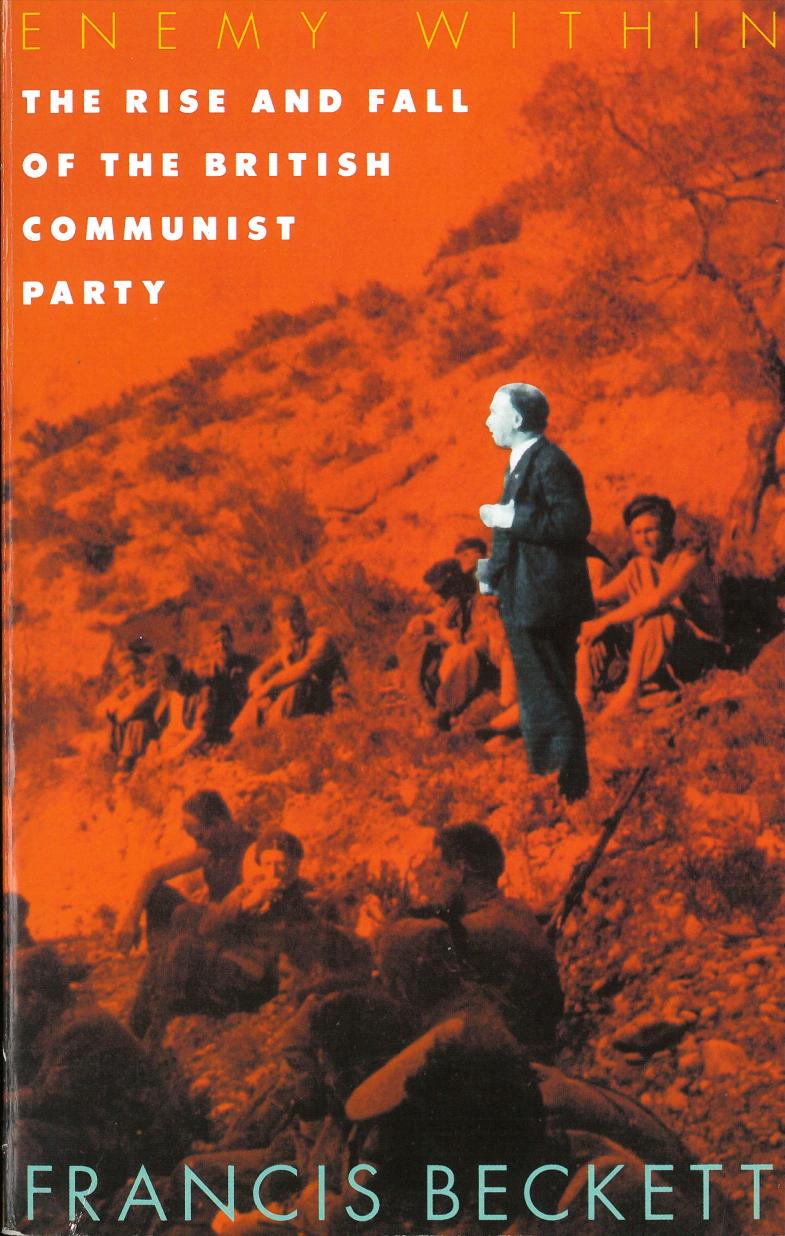Enemy Within: The Rise and Fall of the British Communist Party by Francis Beckett

Author:Francis Beckett [Beckett, Francis]
Language: eng
Format: epub, pdf
ISBN: 9780850364774
Amazon: 0850364779
Publisher: Merlin Press
Published: 1998-01-02T00:00:00+00:00
9
The End of the Old Order
In the middle of the trauma that was 1956, Harry Pollitt resigned as general secretary of the Communist Party. All the reasons for which Pollitt had joined the Party were still at the top of his mind. He was not the sort of socialist who had forgotten at 66 what brought him into the movement when he was 20. His writing still contained sentences such as ‘The Labour movement was built up on the basis of hatred against those who rob the poor,’ and ‘As long as one man robs another of the full fruits of his labour, there will always be need for struggle against it.’ After a visit to India in 1953-4 he wrote of Britons living it up in Calcutta: ‘There is only one thing I wish I could do to them. Not murder, not violence. Only just go and make them eat and sleep in the conditions of the working people who live in the other Calcutta.’ Nor did he ever lose the optimism of 1920, sustained by what he believed were the achievements of the socialist countries. After a bad by-election performance in 1949 he had a drink with his friend Michael Foot, who still laughs affectionately at the memory of Harry saying: ‘We may have lost St Pancras but we’ve won in China.’
His sense of humour survived an attempt to turn him into a myth on Stalinist lines. His biographer Kevin Morgan provides a splendid description of a celebration for Pollitt’s 60th birthday in Lime Grove Baths, Shepherds Bush, at which Pollitt almost disappeared behind a growing heap of presents and panegyrics. ‘Leader yes, but also bone of the bone, and flesh of the flesh of the toilers. That is a most important part of his genius.’ This nonsense from Pollitt’s old friend Peter Kerrigan, former International Brigader, and the Party’s industrial organizer, responsible for its work in the trade unions. Morgan finds it sad that they needed to build him up in this pompous Soviet-style way when he had real qualities which they could have applauded: ‘Pollitt had by his very humanity earned the deep respect and affection of Communists, whom he in turn regarded almost as an extended family.’
Pollitt’s health suffered from overwork as much as from drink and cigarettes. In 1949, with what Morgan rightly calls his ‘rather reckless courage’, he insisted on fulfilling speaking engagements in Dartmouth and Plymouth just after a British frigate sailing up the Yangtze River had been fired on by the Chinese army. Feelings were running high in the Royal Navy. Both the police and the local Party warned of violence, and they were right. Pollitt was set on by a group of sailors, knocked to the ground and kicked for several minutes, until Peter Kerrigan, who often travelled with him to speaking engagements and acted as unofficial bodyguard, managed to disperse the attackers. Kevin Morgan puts it this way: ‘Some brave young sailors decided that what they could not take out on the Chinese People’s Army they would take out on this man of sixty instead.
Download
Enemy Within: The Rise and Fall of the British Communist Party by Francis Beckett.pdf
This site does not store any files on its server. We only index and link to content provided by other sites. Please contact the content providers to delete copyright contents if any and email us, we'll remove relevant links or contents immediately.
| Anthropology | Archaeology |
| Philosophy | Politics & Government |
| Social Sciences | Sociology |
| Women's Studies |
The Secret History by Donna Tartt(16635)
The Social Justice Warrior Handbook by Lisa De Pasquale(11490)
Thirteen Reasons Why by Jay Asher(7794)
This Is How You Lose Her by Junot Diaz(5779)
Weapons of Math Destruction by Cathy O'Neil(5040)
Zero to One by Peter Thiel(4828)
The Myth of the Strong Leader by Archie Brown(4792)
Promise Me, Dad by Joe Biden(4451)
Beartown by Fredrik Backman(4423)
Stone's Rules by Roger Stone(4418)
How Democracies Die by Steven Levitsky & Daniel Ziblatt(4401)
The Fire Next Time by James Baldwin(4345)
100 Deadly Skills by Clint Emerson(4081)
A Higher Loyalty: Truth, Lies, and Leadership by James Comey(4035)
Rise and Kill First by Ronen Bergman(4014)
The David Icke Guide to the Global Conspiracy (and how to end it) by David Icke(3885)
The Farm by Tom Rob Smith(3873)
Secrecy World by Jake Bernstein(3785)
The Doomsday Machine by Daniel Ellsberg(3734)
